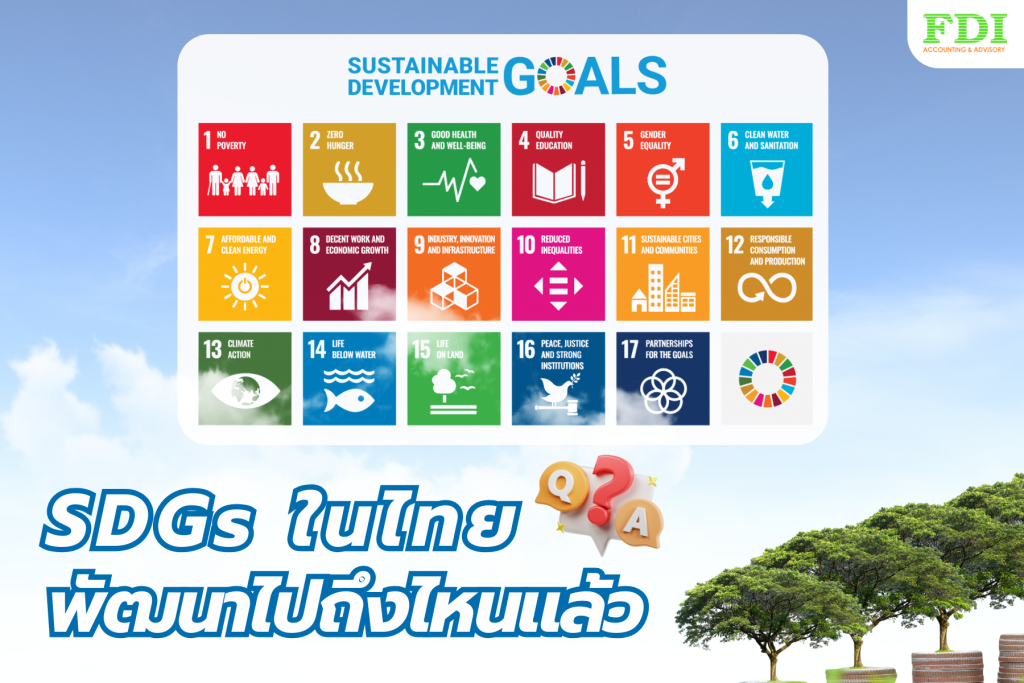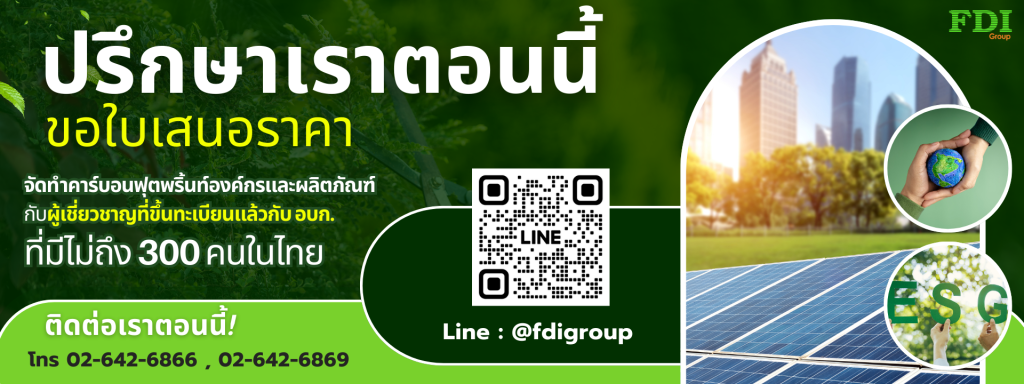Thailand’s SDGs: Driving a Sustainable World that Leaves No One Behind
FromBlog “SDGs x ESG: Connecting Global Sustainability Goals with the Future of Sustainable Business”,where the focus was placed on environmental issues, this article will further explore and analyze the overall progress of Thailand’s SDGs from other key perspectives that are equally important.
As widely recognized, the key strength of the SDGs lies in “balanced development” based on the principle of “leaving no one behind”, emphasizing inclusive participation from all sectors government, private sector, civil society, and the public.
For the Sustainable Development Goals (SDGs), there are a total of 17 main goals. Each goal contains sub-goals known as Targets, with a total of 169 Targets, along with 232 Indicators (244 in total, but 12 are duplicated) developed to monitor progress toward achieving these Targets.
. SDG MOVE has provided interesting information on all 17 Sustainable Development Goals (SDGs), stating that:
- Goal 1: End poverty in all its forms everywhere
- Goal 2: End hunger, achieve food security and improved nutrition, and promote sustainable agriculture
- Goal 3: Ensure healthy lives and promote well-being for all at all ages
- Goal 4: Ensure inclusive and equitable quality education and promote lifelong learning opportunities for all
- Goal 5: Achieve gender equality and empower all women and girls
- Goal 6: Ensure availability and sustainable management of water and sanitation for all
- Goal 7: Ensure access to affordable, reliable, sustainable, and modern energy for all
- Goal 8: Promote sustained, inclusive, and sustainable economic growth, full and productive employment, and decent work for all
- Goal 9: Build resilient infrastructure, promote inclusive and sustainable industrialization, and foster innovation
- Goal 10: Reduce inequality within and among countries
- Goal 11: Make cities and human settlements inclusive, safe, resilient, and sustainable
- Goal 12: Ensure sustainable consumption and production patterns
- Goal 13: Take urgent action to combat climate change and its impacts
- Goal 14: Conserve and sustainably use the oceans, seas, and marine resources for sustainable development
- Goal 15: Protect, restore, and promote sustainable use of terrestrial ecosystems, manage forests sustainably, combat desertification, halt and reverse land degradation, and halt biodiversity loss
- Goal 16: Promote peaceful and inclusive societies for sustainable development, provide access to justice for all, and build effective, accountable, and inclusive institutions at all levels
- Goal 17: Strengthen the means of implementation and revitalize the global partnership for sustainable development
The three main pillars of sustainability are social, economic, and environmental dimensions, combined with two additional dimensions: peace and institutions, and the development partnership dimension, which together form five dimensions. These are categorized into five groups, known as the 5 Ps, as
- People (covering the social dimension): Goals 1–5
- Prosperity (covering the economic dimension): Goals 7–11
- Planet (covering the environmental dimension): Goals 6, 12–15
- Peace (covering the peace and institutions dimension): Goal 16
- Partnership (covering the development partnership dimension): Goal 17
The main focus should not be on the goals themselves, but on the level of objectives.
Although the SDGs are widely recognized as 17 Goals that guide global development, the real substance of the SDGs lies at the Target level. There are a total of 169 Targets, which serve to elaborate what outcomes should be achieved under each Goal and define the ideal world we aim to develop.
These Targets are not merely a checklist of actions but rather outline a vision of the social, economic, and environmental future that is just, sustainable, and truly inclusive.
Development and Implementation of the SDGs in Thailand
Thailand is one of the United Nations member states that endorsed the “2030 Agenda for Sustainable Development” in 2015, committing to actively advance all 17 Sustainable Development Goals (SDGs) in a concrete manner to achieve development that “leaves no one behind.” Thailand possesses clear policy strengths, such as the Sufficiency Economy Philosophy, which the United Nations recognizes as a key concept for sustainable development.
The Thai government has integrated the SDGs into its 20-Year National Strategy, focusing on security, economic development, opportunity creation, equity, and environmental sustainability—serving as a key tool to guide the country’s direction. It has also established the Sustainable Development Committee (SDC), chaired by the Prime Minister, with the Office of the National Economic and Social Development Council (NESDC) acting as the secretariat and the official National Focal Point for the SDGs. Under the SDC, Subcommittees on Sustainable Development Goals have been set up to coordinate at the Target level and monitor progress.
In terms of monitoring and evaluation, Thailand has prepared Voluntary National Reviews (VNRs), which report on the country’s SDG progress to the United Nations. Two VNRs have been submitted so far (in 2017 and 2021). In addition, national indicators linked to the SDGs have been developed at the national, provincial, and local levels, emphasizing the participation of all sectors.
In summary, driving the SDGs in Thailand is not solely the responsibility of the government but a shared mission of all sectors. By working together in a systematic way with clear, measurable goals, Thailand can truly achieve development that “leaves no one behind.” If your organization seeks to develop an SDG strategy to promote sustainability, FDI Group is ready to serve as a consultant to help your organization progress toward the 2030 goals together.
If you are seeking consultants in environmental and sustainability matters, you can reach out to FDI’s team of experts immediately. We are ready to provide guidance across all business industries aiming to enhance opportunities and implement environmental initiatives, aligning with market trends, regulatory policies, and creating opportunities in new markets.
Contact Us
- Facebook : FDI Group – Business Consulting
- @fdigroup
- Phone : 02-642-6866, 02-642-6869, 02-642-6895
- E-mail : infojob@fdi.co.th
- Website : www.fdi.co.th
BlogArticles
ธุรกิจกับผู้บริโภค จะสร้างการมีส่วนร่วมลดคาร์บอนฟุตพริ้นท์อย่างไร ?
ในยุคที่วิกฤตการเปลี่ยนแปลงสภาพภูมิอากาศ (Climate Change)...
Read MoreThailand Taxonomy คืออะไร ? มาตรฐานใหม่สู่สังคมคาร์บอนต่ำ
เคยสงสัยกันหรือไม่ ? ว่าการดำเนินงานด้านสิ่งแวดล้อมของแต่ละธุรกิจดำเนินการกันจริงจังหรือทำเพื่อกล่าวอ้าง...
Read MoreCarbon Label หรือ ฉลากคาร์บอนฟุตพริ้นท์ในไทยมีแบบไหนบ้าง ต่างกันอย่างไร ?
Carbon Label คืออะไร...
Read More





